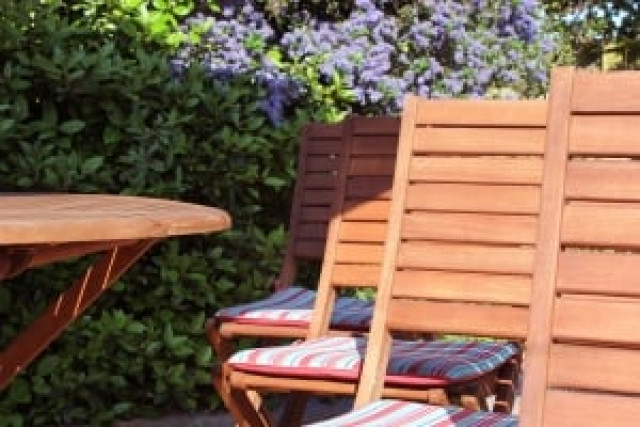Furniture industry enjoys boom despite energy, security woes
Believes negative factors do not hurt consumer’s purchasing power.

According to the World Trade Organization’s statistics, Pakistan’s exports of wooden furniture amounted to $51 million in 2011. PHOTO: FILE
“Regardless of how bad the situation may be, retail goods come first on the consumers’ list,” Mohammad told The Express Tribune on the sidelines of a five-day furniture exhibition that ended last week. “These factors don’t hurt customers’ purchasing power,” he said.
Consumer spending in Pakistan has increased by an average of 26% in the past three years, according to a Bloomberg report published on November 21, 2012 – a strong reflection of the ongoing retail boom.
It is not only fast moving consumer goods (FMCGs) companies that benefited from the increase in consumer spending, furniture manufacturers, too, reaped the fruits of the consumer boom.
According to the World Trade Organization’s statistics, Pakistan’s exports of wooden furniture amounted to $51 million in 2011.
“Our exports represent a very small chunk of total business,” the association founder said. “The local furniture market is easily 50 times higher than our export market and it has always been this way,” he said.

Keeping this in view, the total value of furniture sold in Pakistan is in excess of $2.5 billion. However, he acknowledged, a big segment of furniture sales is undocumented.
It is because of the gigantic size of the local market, Mohammad said, that most manufacturers don’t even think about exports. “Even small to mid-tier shops and showrooms have a turnover in millions,” he said.
According to estimates of APFEA – the lobby representing the country’s top manufacturers – furniture manufacturers sell Rs0.5 million worth of furniture for a single wedding. Even the poor spend about Rs50,000 on furniture given to their daughters, he said.

Home furniture is certainly the largest market segment, Mohammad said, but there are other sectors that significantly contribute to the demand. Sales of school furniture have picked up as manufacturers are getting a lot of contracts from government as well as private schools. Office furniture has also become an important segment.
There are mainly six clusters – Karachi, Lahore, Sargodha, Chiniot, Gujrat and Peshawar – of furniture manufacturers that mostly cater to the demand, Mohammad said.
Karachi mainly caters to its own residents and those of rural Sindh while Lahore, which is the creative centre of furniture manufacturing, covers most of central Punjab including Faisalabad, Sialkot, Sheikhupura and other areas developed around Lahore.
Gujrat has become a centre for visitors from nearby cities who frequently come here, mostly on weekends, for shopping. Peshawar’s manufacturers, on the other hand, don’t only serve Khyber-Pakhtunkhwa but also Afghanistan, which accounts for a significant chunk of their sales.
The furniture industry is expanding mainly on the back of the consumer boom, but infrastructure development has also helped the industry, according to Mohammad. “The motorway network has made it easier for people to travel across and this is why places like Gujrat and Chiniot are catering to a large market,” he said.
Moreover, Pakistanis have been frequently travelling to international destinations such as Dubai. As a result, he said, their awareness of certain products has increased and they have developed sophisticated purchasing habits.
“They have money and they want to make their homes more beautiful by buying expensive goods including furniture,” he said.
Published in The Express Tribune, March 20th, 2013.
Like Business on Facebook to stay informed and join in the conversation.



















COMMENTS
Comments are moderated and generally will be posted if they are on-topic and not abusive.
For more information, please see our Comments FAQ